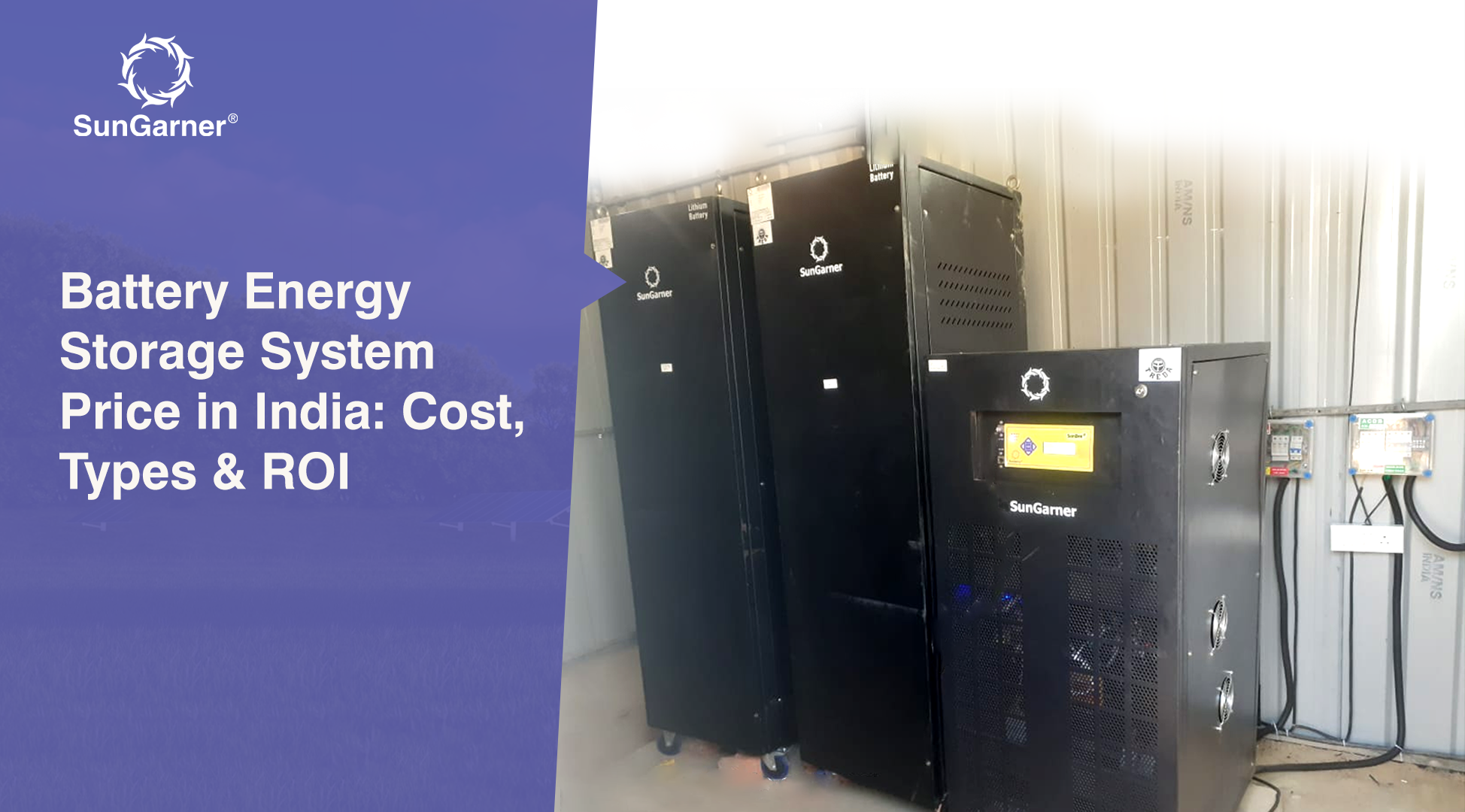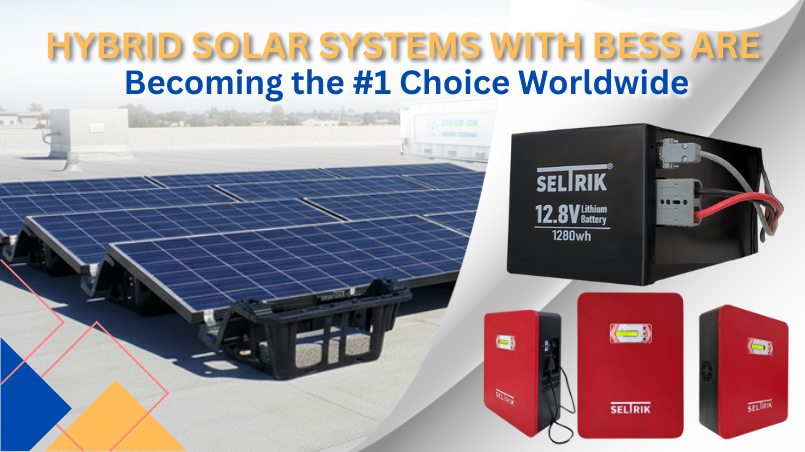On-Grid Solar Systems: Key Benefits You Should Know
Solar energy is no longer just a futuristic idea—it’s a present-day reality, making homes and businesses more sustainable, cost-efficient, and energy-independent. If you're considering switching to solar but are unsure where to start, on-grid solar systems are often the most practical and rewarding option. They're smart, cost-effective, and seamlessly integrate with your existing electricity setup.....
Solar energy is no longer just a futuristic idea—it’s a present-day reality, making homes and businesses more sustainable, cost-efficient, and energy-independent. If you're considering switching to solar but are unsure where to start, on-grid solar systems are often the most practical and rewarding option. They're smart, cost-effective, and seamlessly integrate with your existing electricity setup.
In this guide, we’ll walk you through what on-grid solar systems are and, more importantly, why they might just be the smartest energy investment you'll make.
What Is an On-Grid Solar System?
An on-grid solar system—also known as a grid-tied solar system—is connected directly to your local electricity grid. During the day, it uses sunlight to generate electricity for your home or office. If your solar panels produce more energy than you use, the excess gets fed back into the grid, and in return, you often get credited for that contribution (this is called net metering).
At night or during low-sunlight hours, when your solar system might not produce enough power, you can draw electricity from the grid. This balance between self-generated and grid-supplied power is what makes the on-grid system a popular choice.
After knowing what it is, let's understand its benefits
1. Big Savings on Electricity Bills: Let’s be honest—electricity bills have become a consistent burden in most households and businesses. One of the biggest reasons people go solar is to cut down on these recurring expenses. With an on-grid system, you’re producing your own power during the day, which significantly reduces the amount you draw from the grid.
And what if your system produces more than you need? You’re not wasting it—you’re sending it back to the grid and getting credited for it. Over time, these savings can be substantial. Most users start seeing returns on their investment within just a few years.
2. Easy Maintenance & Long-Term Reliability: One of the understated benefits of on-grid solar systems is their low maintenance. Since there are no batteries involved (unlike off-grid systems), the setup is much simpler and more durable. Fewer components mean fewer chances of failure and lower upkeep costs.
Also, solar panels typically have a lifespan of 25+ years. Combine that with a robust inverter and professional installation from trusted providers like SunGarner, and you’re looking at a system that keeps on giving—year after year.
3. Earn Credits Through Net Metering: The concept of net metering is what sets on-grid systems apart. Imagine running your ceiling fans, lights, and even air conditioning using power from the sun, and at the same time, sending surplus energy back to the grid. The best part? You get credited for every unit you export.
Depending on your state or region’s policy, these credits can either offset your electricity bill or even carry forward to the next month. It’s like getting paid for being eco-friendly.
4. No Need for Batteries: Batteries can be expensive, require maintenance, and take up space. One of the great things about on-grid systems is that they don’t need batteries to store power. Your grid acts like a giant battery, giving you electricity when you need it and taking the extra when you don’t.
This not only cuts down on initial setup costs but also makes your system more efficient and space-friendly.
5. Environmentally Friendly Choice: By now, we are all aware that the climate conversation is more urgent than ever. An on-grid solar system helps you drastically reduce your carbon footprint. Every kilowatt-hour of solar energy used instead of coal- or gas-powered electricity prevents harmful emissions from entering the atmosphere.
So when you choose solar, you’re not just saving money—you’re contributing to a cleaner, greener planet. And with India’s ambitious targets to increase renewable energy capacity, you're becoming part of a national movement toward sustainability.
6. Increases Property Value: Studies have shown that homes and commercial spaces with solar installations are more attractive to buyers. Why? Because they come with the promise of lower energy bills and a smaller environmental impact.
An on-grid solar system is not just a utility—it's an asset. Whether you’re planning to sell soon or just want to future-proof your home, solar makes a great long-term investment.
Final Thoughts: Is It Time to Go On-Grid?
Making the switch to solar might feel like a big step—but it doesn’t have to be a complicated one. On-grid solar systems strike the perfect balance between independence and reliability. They help you save, contribute to the planet, and take control of your energy use without cutting ties with your electricity provider.
At SunGarner, we help you make this transition easy, smooth, and hassle-free. From personalized consultation to expert installation, we ensure that you get the most out of your solar investment.
So, if you're looking for a smarter way to power your home or business, consider going on-grid. With the sun on your side and the grid as your backup, the future of energy is bright—quite literally.
Need help designing the perfect solar setup? Reach out to SunGarner today, and let’s brew your solar success together.
Frequently ask question
1. What exactly is an on-grid solar system?
Answer: An on-grid solar system is a solar power setup connected directly to your local electricity grid. It allows you to use solar power during the day and draw electricity from the grid when needed—like at night or during cloudy weather. If you generate extra power, it gets sent back to the grid, often earning you credits.
2. Will I still get an electricity bill after installing an on-grid system?
Answer: Yes, but it will likely be much lower. With net metering, any excess electricity your system sends back to the grid can reduce or offset your bill. In some months, you might only see minimal charges for grid usage or meter fees.
3. What is net metering, and how does it help me?
Answer: Net metering is a billing system that gives you credit for the extra electricity your solar panels produce and feed into the grid. These credits can then be used to lower your electricity bill when your system isn’t producing enough, like at night or during rainy days.
4. Are on-grid solar systems hard to maintain?
Answer: Not at all. With no batteries involved and few moving parts, maintenance is minimal. Occasional cleaning of solar panels and annual checks of your inverter system are usually enough.
5. Is switching to solar really good for the environment?
Answer: Yes, every unit of solar energy you use reduces your dependency on fossil fuels. This means less air pollution, fewer greenhouse gas emissions, and a tangible step toward a more sustainable planet.
6. How do I know if my roof or space is suitable for solar panels?
Answer: At SunGarner, we offer personalized consultations to assess your site’s solar potential. Factors like roof angle, shading, and structure all play a role—and we help you navigate it all seamlessly.









